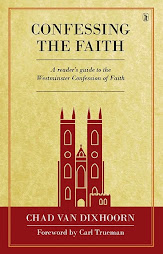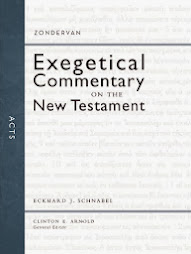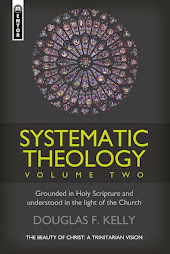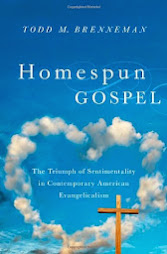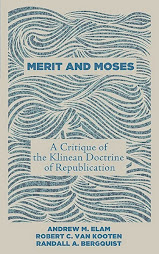
“If we do not make the Lord Jesus glorious; if we do not lift Him high in the esteem of men…we shall not have the Holy Spirit with us. Vain will be rhetoric, music, architecture, energy and social status: if our design be not to magnify the Lord Jesus, we shall work alone and in vain.”
- C.H. Spurgeon
There are few men that I look to with the same interest and respect as I do Charles Haddon Spurgeon. He was a pastor, preacher, writer, evangelist, teacher, mentor, philanthropist, innovator, thinker, husband, and father. He was and is, in my mind, without peer. I am hopeless to sum up Charles Spurgeon’s life in this limited space. However, I will attempt and feebly so, to highlight a few things that make him a hero to me and a worthy subject for the contemporary church’s consideration.
Charles Haddon Spurgeon was born into a Christian family in Essex on June 19, 1834. In spite of godly surroundings and the fervent prayers of his mother Charles was not converted to Christ until the age of 16. The knowledge of his own sinfulness weighed heavy upon his young soul. Later, he would write, “I reckoned that the most defiled creature…was a better thing than myself, for I had sinned against Almighty God.” This proper understanding of sin would make Spurgeon an effective preacher of the free grace of God. From his late teens until he was 19 years old (1851-1854) Charles pastored a Baptist church in a small village called Waterbeach. The church grew from 40 to 100 during that time and Spurgeon became convinced that he would spend the rest of his life serving Christ and His church as a preacher of the Gospel.
While still only 19 Spurgeon accepted a call to pastor the historic but dying Park Street Chapel, a Baptist congregation in London. The worship center was built to seat 1,200 but saw fewer than 300 in attendance. Within weeks the once almost empty church was overflowing with people eager to hear this young man who preached so fervently. The building was retro-fitted to hold 1,500 but in less than a year that was too small. The decision was made to build a new chapel that would seat 5,000 and have standing room for an additional 1,000. It would be called The Metropolitan Tabernacle. In the days before mega-churches the Metropolitan Tabernacle was a strange sight. “The lad from Cambridge” found himself pastor of the largest church in the world. During Spurgeon’s ministry there, 14,691 people were added to the role, almost 11,000 of which were by conversion and baptism. Thousands of copies of his sermons were mailed out all over the world each week. What an enormous burden for a young pastor to bear. What a temptation toward self-aggrandizement. But Spurgeon maintained a healthy distrust of numeric success. He saw it very much as the exception rather than the rule. In 1887 he wrote, “Long ago I ceased to count heads, truth is usually in the minority in this evil world.”
Spurgeon seemed always to be the target of vicious criticism. This certainly was owing, at least in part, to his prominent voice. After all, Spurgeon was pastor of the largest church in the world and was not shy to offer his opinion. This is not because he enjoyed controversy or was belligerent in any way. Indeed, he loved tranquility and desired to live in unity with his brothers and sisters in Christ. However, Spurgeon’s love for truth and passion for doctrinal precision outweighed all other passions. In the 1860’s he wrote, “Friends chide us and foes abhor us when we are very jealous for the Lord God of Israel, but what do these things matter if the Master approves?...[Be] not dismayed for flesh and blood while you are for the Lord, and for His truth and cause. And howbeit we see truth put to the worse for the time, yet Christ will be a friend to truth, and will act for those who dare hazard all that they have for Him and for His glory.”
Spurgeon’s commitment to the truth was bred within him early on. His father and grand-father were both Congregationalist preachers. When he was only a child, Spurgeon discovered a substantial collection of Puritan writings in the home of his grandfather. The wedding of spiritual fervor and doctrinal clarity championed by the Puritans would mark Spurgeon for the rest of his life. It would fire his preaching and serve as a bulwark through times of sickness, defeat, and controversy. During his life, Spurgeon was often criticized by Arminians and newspaper editorialists because of his high doctrine of God’s sovereignty. On the other hand, he was criticized by “hyper-Calvinists” for his passion for evangelism. Finally, he was criticized and officially censured by the Baptist Union for his stand in what became known as “The Down-Grade Controversy.”
The controversy was sparked by two articles that ran in The Metropolitan Tabernacle’s newsletter, The Sword and the Trowel, called “The Down-Grade”. Spurgeon whole-heartedly endorsed the articles which warned of the downward slide of England’s churches and placed the blame at the feet of preachers and churches that no longer held firmly to the truth. Pastors, who though orthodox themselves, were no longer contending for the truth and in many cases even shared their pulpits with men who outright denied fundamental tenets of biblical Christianity. As evidence of these errors mounted Spurgeon became more outspoken. To those who thought him too stringent Spurgeon wrote, “A little plain speaking would do a world of good right now. These gentlemen desire to be let alone. They want no noise raised…It is time that somebody should spring his rattle, and call attention to the way in which God is being robbed of His glory, and man of his hope.” He went on to call Christians to consider breaking fellowship with those who profess faith in Christ but deny Gospel essentials. “Numbers of easy-minded people wink at error so long as it is committed by a clever man and a good-natured brother, who has so many fine points about him…Under colour of begging friendship of the servant, there are those about who aim at robbing the Master.”
Spurgeon refused to tone down his rhetoric even though many of his brethren pleaded for him to do so. Certainly, he took no pleasure in his difficult duty. “It is no joy to us to bring accusations; it is no pleasure to our heart to seem to be in antagonism with so many.” During this time, Spurgeon’s health problems escalated. Kidney problems and gout caused him severe, debilitating pain. Through it all Spurgeon did not back down in sounding the alarm that the evangelical faith was under serious assault from within. He saw no reason why the Baptist Union should seek to accommodate those pastors who denied essential Christian doctrines such as the authority of Scripture, the virgin birth of Christ, the substitutionary atonement, and the doctrine of hell. “To be very plain, we are unable to call these things Christian Unions, they begin to look like Confederacies in Evil.” On January 13, 1888 Spurgeon met with leadership of the Baptist Union and urged them to adopt an evangelical statement of faith. They refused. In response, he submitted a letter withdrawing from the Union. In the end, the leadership of the Baptist Union, unwilling to stand clearly for truth, accepted his withdrawal and then censured Charles Haddon Spurgeon.
Spurgeon hated division. But his conscience was captive to the Word of God and would not permit him to align with anyone who denied what God’s Word made plain. “Nothing has ever more largely promoted the union of the true than the break with the false.” The Down-Grade Controversy broke Spurgeon’s heart and is thought by many to have hastened his death which came on January 31, 1892.
Spurgeon’s funeral was attended by thousands who came to mourn the passing of this contender for truth and winner of souls. The Reverend Archibald Brown spoke these words at the graveside:
“Champion of God thy battle, long and nobly fought, is over; the sword which clave to thy hand, has dropped at last; a palm branch take its place. No longer does the helmet press thy brow, oft weary with its surging thoughts of battle; a victor’s wreath from the great Commander’s hand has already proved thy full reward.
“Here for a little while shall rest thy precious dust. Then shall thy Well-Beloved come; and at His voice thou shalt spring from thy couch of earth, fashioned like unto His body, into glory. Then, spirit, soul, and body shall magnify thy Lord’s redemption. Until then beloved, sleep. We praise God for thee, and by the blood of everlasting covenant, hope and expect to praise God with thee. Amen.”
Books by and about C.H. Spurgeon:Spurgeon by Arnold Dallimore – a great place to begin
The Forgotten Spurgeon by Iain Murray – My favorite work on Spurgeon
Spurgeon v. Hyper-Calvinism by Iain Murray - A great follow-up by Murray
Lectures To My Students by C.H. Spurgeon – a must for ministers
Morning & Evening by C.H. Spurgeon – daily devotions




































